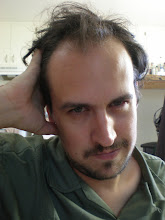The Only Thing To Carry Openly In Starbucks Should Be Coffee
I don't care what tragedies the gunman may have borne, if it was in fact anything more than a false alarm from someone talking big. Campuses must take these incidents seriously, because bringing a gun to school, regardless of your motivations or rationalizations, is a virus of evil actions. Classic example of that Christian theme "Love the sinner, hate the sin."
Guns in society = bad. So then, why do certain people always think that more guns > fewer guns and = better for society?
It seems to me that if you want to reduce gun violence, you reduce the access to guns. Also, it just seems tacky for people to wander about suburban America packing guns. How serious can you get about your double tall quintuple lattes with an extra shot of caffeine? Are you worried someone is going to beat you to the last bearclaw or blueberry muffin?
Other than hunting, or locked up in a cabinet at home for self-defense, which are two reasons which I will accept, the former less grudgingly than the latter, I can't accept the necessity of guns in our every day life. I don't accept the rationale that we should accept these open carry proponents swaggering around with big guns on their hips. This isn't the Wild West.
They talk about the Second Amendment and a well-regulated militia and the right to bear arms. Fine. I've encountered so-called citizen militias in the Bitterroot Valley. They were bullies, who tried to intimidate the lawfully elected representatives of local government. You want to be in a well-regulated militia? Join the National Guard or the Army Reserves.
Carrying around guns as a political statement is way more aggressive than this country needs. There is a quote that caught my attention from one of the open-carry advocates: "There's this assumption that everyone in open carry is a crazy redneck in a pickup. But look at me - I drive a Prius, and I'm gay."
Faulty reasoning: there is nothing inherent to driving a Prius and being gay that means you can't be a crazy redneck. This is the land of equal opportunity, after all. The only thing in his argument that works is that he can't be in a pickup if he drives a Prius.
When you look at the tragedies of school shootings, you have to realize there is too much at stake to not support further restrictions on guns, stronger gun-control laws. Every gun that can be restricted is one less gun that could be accessed by someone with emotional issues.

